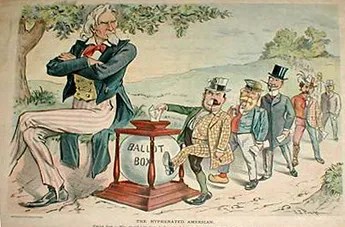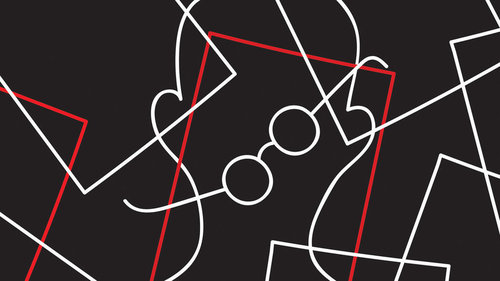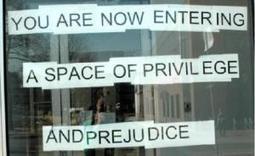
Cartoon shows citizens with their heritage split down the middle.
===
Writing about racialized and sexualized ideas, events, and peoples naturally involves sensitive language. Equally, what is considered appropriate changes over time as one term acquires negative connotations or new language is developed.
For some time now, I almost always use “racialized” or “racialization” instead of “race.” This recognizes the socially constructed nature of how people are raced. People are not White or Black but are raced/racialized as White or Black, for example.
Also, the capital “W” and “B” are deliberate. This helps us remember they are powerful—yet fully arbitrary—social categories.
More recently, I have also started capitalizing the “M” and “W” in cis-Man and cis-Woman because they are likewise powerful—yet fully arbitrary—social categories that are sexualized/genderized.
But getting back to racialized terminology, more recently I’ve wondered over the difference between Black, African American, African-American, and African-American (as an adjective).
First, regarding the hyphen between the “African” and “American,” there are three schools of thought (and the same would apply to “Mexican” and “American”):
1- some say to always use the hyphen
2- some say to never use the hyphen
3- some say to only use the hyphen when the term functions as an adjective (e.g., African-American students)
There is also a debate from the Gilded Age and Progressive Era that looks at “hyphenated Americans” as less than real United Statesians (and yes, “United Statesians” is deliberate – I see ethnical dilemmas with the word “Americans”). This was an era when full assimilation was not only expected but was demanded – but only to the extent that people “looked” and “acted” like a proper White United Statesian, not to the extent that they were granted rights White individuals had.
Click through to read more.
Source: andrewpegoda.com
I prefer the term European-American to White. European-American explains that their heritage is foreign to the Americas.
Like this:
Like Loading...




